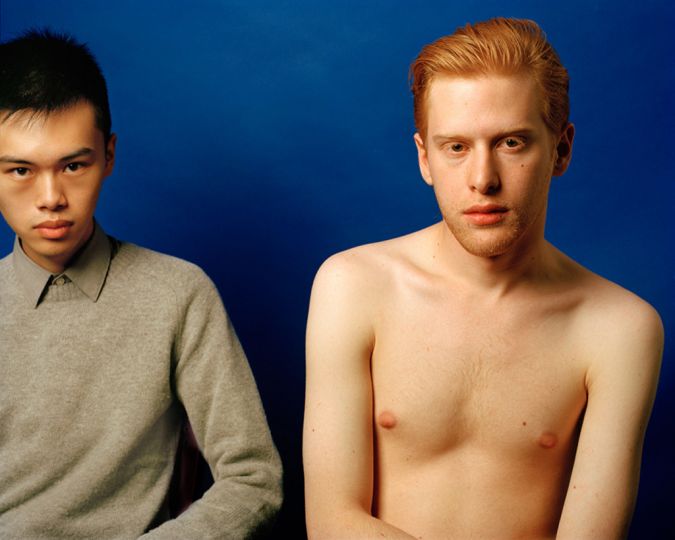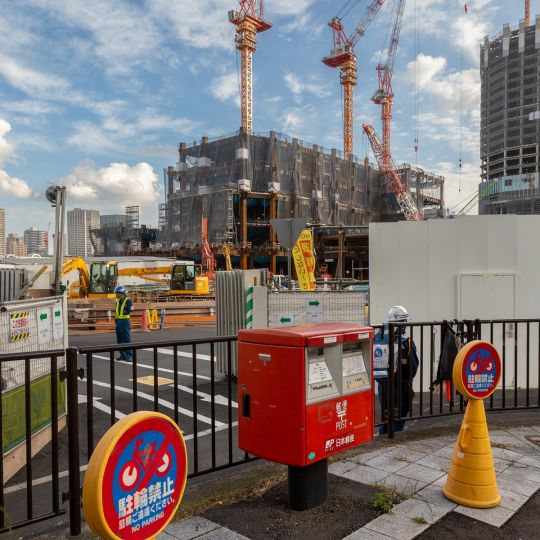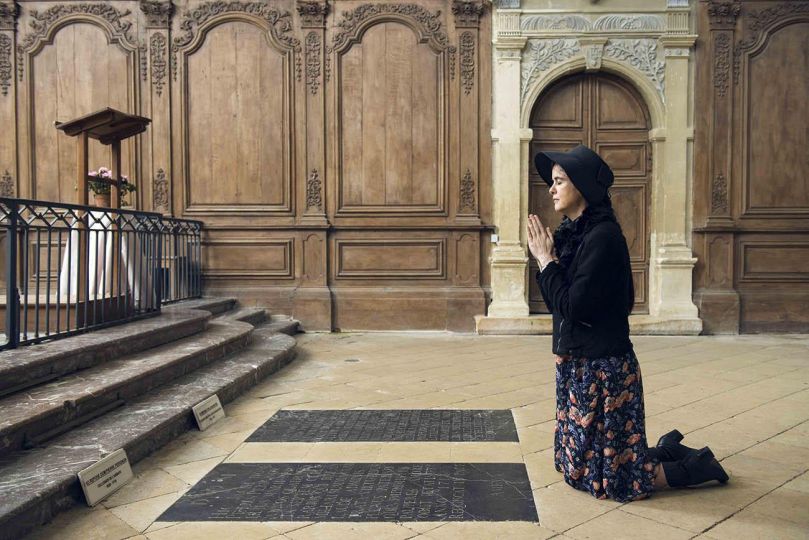J’ai été honoré d’être invité à être un lecteur de portfolio pour la troisième « New York Portfolio Review » annuelle parrainée par le Lens Blog du New York Times et la City University of New York (CUNY) Graduate School of Journalism. Les lectures ont eu lieu au cours d’un week-end récent avec le Jour 1 pour les photographes de 21 ans et plus, chacun recevant six critiques privées ; le Jours 2 pour les photographes de 18 à 27 ans, avec quatre critiques privées pour chaque participant, complétées par des conférences de Santiago Lyon, directeur de la photographie pour The Associated Press, sur la construction de portfolio, et par le photographe Phil Toledano sur le processus créatif. Il y eu plusieurs autres grands conférenciers au cours de la journée, y compris le collectionneur WM. Hunt, les photographes David Guttenfelder, Radclife ‘Ruddy’ Roye et Austin Merril de Everyday Africa, qui ont rejoint le corédacteur en chef du Lens Blog du New York Times, James Estrin et Kerri MacDonald pour une très vivante discussion de jury.
Sur les douze rendez-vous prévus avec les photographes le premier jour, et ceux rencontrés pendant les pauses, j’étais impressionnée par les travaux qui m’ont été montrés. Je les partage avec les lecteurs de L’Oeil de la Photogrpahie.
Nadia Sablin, born in the USSR, based in Brooklyn, NY, is a recipient of the Firecracker Grant, a New York Foundation for the Arts fellowship in photography and a Puffin Foundation Grant. Her work has been featured in The Guardian, The Financial Times, Slate, American Photo, and the Calvert Journal and her photographs exhibited across the US, including the Philadelphia Museum of Art, the Southeast Museum of Photography, the Cleveland Museum of Art, Bellevue College, and TWU School of Art. In 2015 she received the Center for Documentary Studies/Honickman Book Prize. Her monograph “Aunties” will be published in November 2015.
Jess T. Dugan, « Every Breath We Drew » explores the power of identity, desire, and connection through portraits of herself and others. “Working within the framework of queer experience and from my actively constructed sense of masculinity, my portraits examine the intersection between private, individual identity and the search for intimate connection with others. I photograph people in their homes, often in their bedrooms, using medium and large format cameras to create a deep, sustained engagement, resulting in an intimate and detailed portrait.
Judith Black’s career spans nearly three decades. Her photographs of domestic life in its many dimensions have been exhibited throughout the US and abroad. A recipient of a Guggenheim Fellowship, Black’s work records the different relationships in her family — mother, sibling, stepfather, and partner; the physical and emotional changes they have all made over the years.
Thomas Alleman during a fifteen-year newspaper career, Alleman was a frequent winner of distinctions from the National Press Photographer’s Association, to being named California Newspaper Photographer of the Year in 1995 and Los Angeles Newspaper Photographer of the Year in 1996. His pictures have been published regularly in Time, People, Business Week, Barron’s, Smithsonian and National Geographic Traveler, among others. He is currently finishing a collection of black-and-white urban landscapes, « Sunshine & Noir », made in the neighborhoods of Los Angeles.
Guy Yechiely, an artist and a photographer, graduated in 2011 from the Department of Photography at the Bezalel Academy of Arts and Design in Jerusalem. Yechiely’s work harmonizes with western art of the 18th and19th centuries, with neo-classical painters like Ingres and Jacques-Louis David and other classical artists. He strives to capture diverse aspects of each subject, and treats complex issues, like Orientalism, Politics and Middle Eastern culture, with a fresh approach.
Mahtab Hussain, at the center of Hussain’s work is the struggle of young, British, working class Asian men in Birmingham, England as they attempt to develop a sense of identity in contemporary Britain. These intimate portraits reveal a crisis of the individual, divided between a profound sense to belong and to assimilate, while set against the pull of cultural and religious restraints. “You Get Me?” serve’s as a powerful metaphor for the intricacies of defining a multicultural society and, on a grander scale, its failings as seen against the backdrop of modern British culture
Xavier Lujan, an artist based in New York City. « I remember the first time I went into the darkroom. I was entranced by the paper slowly turning completely black, only the profile of the things that were just on top of it remained in the original unexposed shade of white; the smell of the chemicals bursting through my nose. It was so simple. What an amazing experience just to be in that moment—I remember it so clearly—I wasn’t thinking about doing things the correct way, or worried about making mistakes; I was free. In that moment, there were no mistakes. »
Ervin A. Johnson was born and raised in Chicago. After graduating from the University of Illinois-Urbana Champaign with a bachelor’s in Rhetoric he began work on his second bachelor’s at Columbia College Chicago in photography. Portraiture that describes what it means to exist as a gay Black man in America is exhibited in his past and current projects. Johnson re-imagines his cultural and racial identity through mixed media photography and video. #INHONOR #blacklivesmatter
Sinan Tuncay, is a New York-based artist who makes both still and moving images. Born in 1986 in Istanbul, he received his BA from Sabanci University in Visual Communication Design (2010) and his MFA from the School of Visual Arts in Photography, Video and Related Media (2013). He designed and directed a music video project for the notable Turkish singer Sezen Aksu’s song, ‘Vay’, which was nationally awarded Best Music Video of 2012 by both 18th Kral Music and 39th Golden Butterfly Awards. His work has been exhibited internationally at the Istanbul Museum of Modern Art and Governors Island Art Fair in New York.
Pedro Silveira, was born in Belo Horizonte. His project “Ephemerides of the Genesis” is based on Brazil’s history of Portuguese colonizers, slaves coming from some regions of black Africa and native Indians, originally forming the country. Before 1850 more than five million slaves were brought into the country. This project was possible with the support of XIII Marc Ferrez Photography Award sponsored by Brazilian National Foundation for Arts ».
Melodie McDaniel, the daughter of an African and Native American jazz musician father and a Jewish activist mother, has remained close to her multi-racial roots. McDaniel’s works challenge prevailing motifs of American identity, and are deeply invested in subculture. Her “Stories” series — evocative works capturing bold and arresting imagery of American countercultures from rural deer hunting backdrops of Tennessee, to the brash streets of Hassidic Brooklyn.
Gesche Wurfel, « With my project, Oppressive Architecture, I explore the aftermath of connections between American slavery and German Nazism in the area of forced labor systems and what impacts they have left on the contemporary landscape and its inhabitants. The project was originally inspired by Stanley Elkins’ claim that the Nazi regime took inspiration from the plantation and slavery system from the pre-Civil War era to develop it for their own purposes through the construction of labor and concentration camps. »
Rocio de Alba, is a fine art photographer based in New York. Her new and developing series explores the dynamics of her personal relationships as they relate to the intricacies of the modern family, exemplified in her own life. “I have been a mother most of my adult life. I have four children that range in age from my eldest girl of 21 years old to my youngest who just turned three.”
par Elizabeth Avedon
Liens:
http://paratyemfoco.com/en/portfolios/pedro-silveira

















